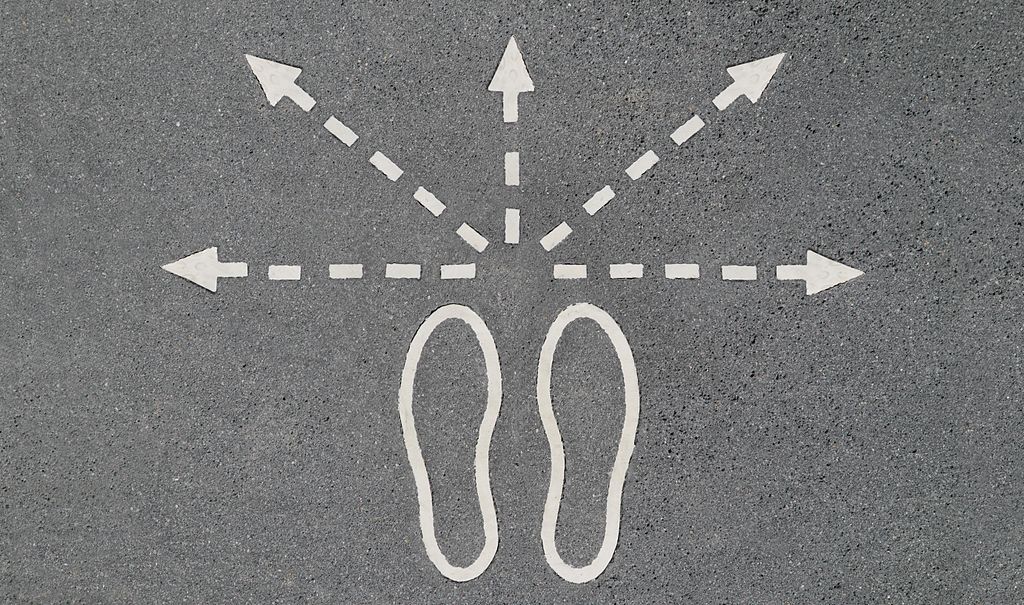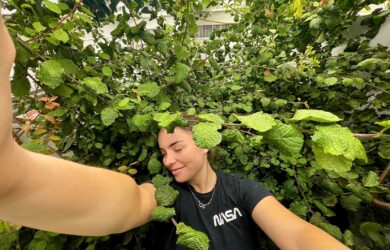
Corina Logan has launched a campaign for Open Access publishing.
We researchers make academic culture so if we change our individual publishing practices then we change the culture.
Corina Logan
Researchers need to stop exploiting themselves and discriminating against who can access their research, according to a new paper which launches a campaign to change academic culture.
The article, We can shift academic culture through publishing choices, which is published on F1000Research, is by Corina Logan, a Gates Cambridge Scholar and Leverhulme Early Career Research Fellow in the Department of Zoology at the University of Cambridge.
She says many researchers see the traditional journal system as exploitative because researchers contribute material for free and because much of the peer review process is free while journals make profits by charging universities to access it.
However, if researchers publish in Open Access journals, Logan says they risk not getting a job or grant because it is usually the traditional journals that are viewed as more prestigious.
She states: "Researchers give papers for free (and often actually pay) to exploitative publishers who make millions off of our articles by locking them behind paywalls. This discriminates not only against the public (who are usually the ones that paid for the research in the first place), but also against the academics from institutions that cannot afford to pay for journal subscriptions and the 'scholarly poor'."
The paper outlines criteria for researchers to consider when making publishing choices. That includes publishing in open access journals that are at ethical publishers, which ensures that profits are reinvested in academia and/or used to modernise the publishing infrastructure for researchers. It also recommends publishing in Open Access journals with CC-BY licences to ensure authors retain the copyright to their research and enable others to reuse the work (with credit) and mine the content.
It says: "A CC-BY licence means that rather than simply gaining access to a PDF to read, individuals instead gain access to the information inside the PDF, such as the data, figures and content."
Logan [2008] argues that some of the journals researchers feel pressured into publishing in "don't have the best practices in terms of increasing scientific rigour". She says that some Open Access journals at ethical publishers improve quality by publishing the peer review history alongside the publication, which allows people to objectively judge whether editorial or reviewer biases played a role in the acceptance of the paper. These journals require publishing the data that the paper is based on, which can prevent data fabrication fraud, they usually do not have word limits and they encourage authors to explain all of the details involved in how they conducted the study, which addresses the current reproducibility crisis in science. Many of these journals choose which articles to publish based on whether they are scientifically valid or not, rather than traditional journals that often choose articles based on how many times the editor subjectively thinks the paper might be cited (thus increasing the impact factor of the journal).
Logan says: "We researchers make academic culture so if we change our individual publishing practices then we change the culture. One way forward is to connect researchers with the costs and consequences of our publishing choices and shift academic publishing away from exploitative models, which will also save academia millions. All of the options we need to publish ethically already exist, and at prices that fit a range of budgets."
To build on the momentum from the paper, Logan and fellow early career researchers have organised a campaign to highlight the problems they face. Called "Bullied into bad science", it seeks to encourage universities to adapt to the new playing field in publishing "to maintain reputations in research leadership and to better support the work of early career researchers". Logan says that means publicly endorsing researchers' freedom to disseminate through open principles, widening dissemination and increasing quality. The campaign is asking early career researchers from all fields, not just the sciences, who feel they have been pressured into acting against their ethics in the pursuit of an academic career to sign their letter.
*Picture courtesy of Wikimedia Commons: Pasitos by I Melenchon.

Corina Logan
- Alumni
- United States
- 2008 PhD Experimental Psychology
- Murray Edwards College (New Hall)
Originally from the Seattle, Washington area, I was a Gates Scholar at Cambridge 2008-2011. I investigate how behavioral flexibility relates to invasion success in grackles (an urban bird) and whether training species to be more flexible increases their chances of success in human modified environments as a Senior Researcher at the Max Planck Institute for Evolutionary Anthropology in Leipzig, Germany. I co-founded Peer Community in Registered Reports (https://rr.peercommunityin.org/about/about) which is innovating RRs to make them accessible for all fields and types of research, and co-lead the #BulliedIntoBadScience campaign where early career researchers are working to change academic culture to adopt open research practices to improve research rigor.
Previous Education
Evergreen State College B.S. in Biology 2004
Skagit Valley College A.A. in Acting 2002
Links
https://nerdculture.de/@CorinaLogan
http://www.CorinaLogan.com
https://twitter.com/LoganCorina












